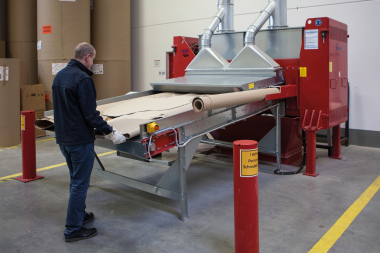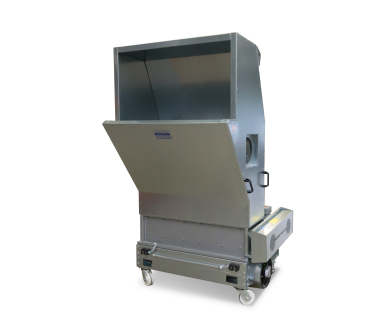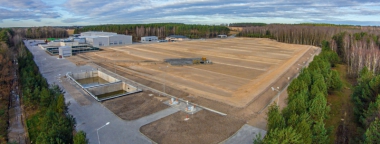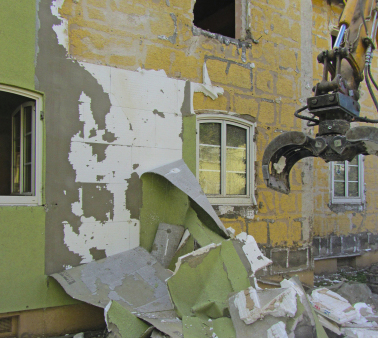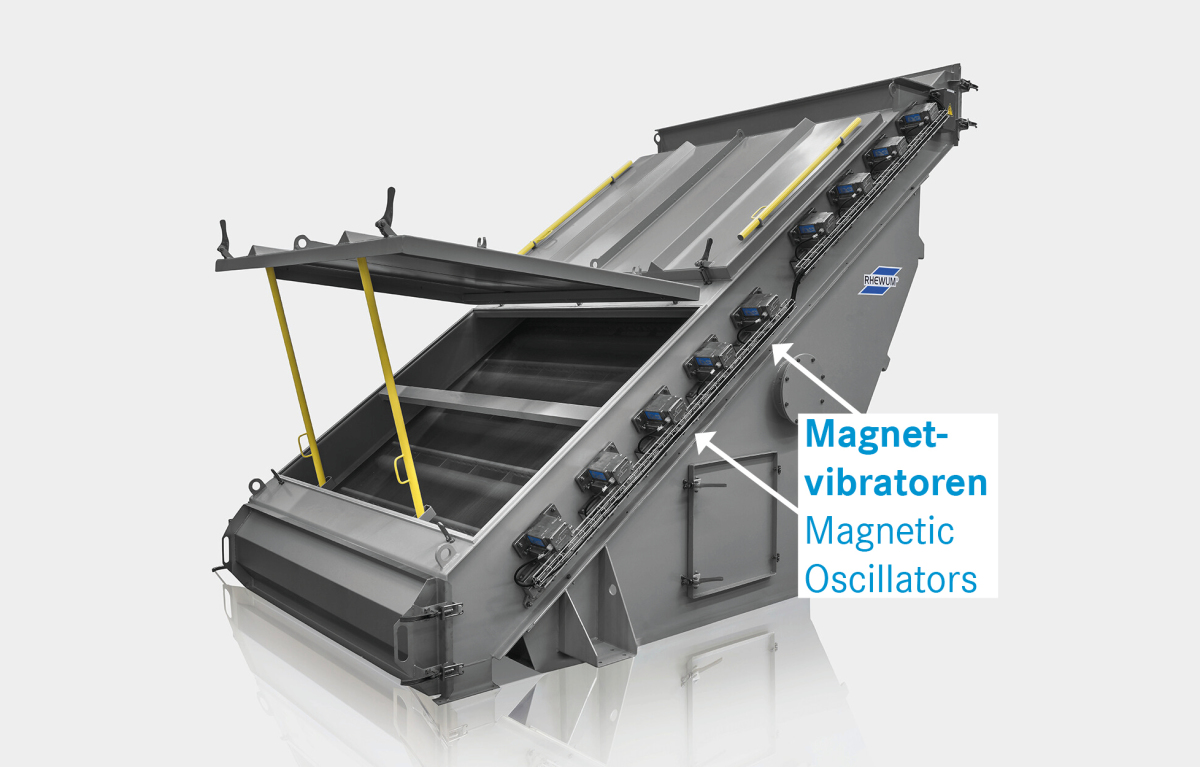Process waste disposal in corrugated board production
18.04.2024In Canada, another Höcker Polytechnik scrap handling system is operating for process waste in corrugated board production. Canada Corrugated Industries Inc. – CanCorr for short – operates in its newly built plant in Surrey, British Columbia. The heart of production is the corrugator from the manufacturer BW Papersystems, which enables CanCorr to produce up to 160 million m² annually for the markets in western Canada and the USA.
 MultiStar filter system with integrated briquetting press and PMA material separator at the CanCorr centralized scrap recovery system
MultiStar filter system with integrated briquetting press and PMA material separator at the CanCorr centralized scrap recovery system
© Höcker Polytechnik GmbH
From the earliest ideas for the new plant, the focus was on energy-efficient operation with sustainable process waste management. Automated process waste disposal was also to reduce personnel costs and increase recycling revenues. Sustainable systems will end uppaying off for the company and the environment in this application.
Planning for CanCorr's new plant began in August 2021, and CanCorr chose the right partner in Kernic Systems right from the start. Kernic Systems has been successfully developing and implementing scrap recovery and recycling systems for its customers in the printing, paper, corrugated board and recycling industries in North America and Canada for over 40 years. Höcker Polytechnik GmbH from Hilter a.T.W. in Lower Saxony/Germany, has been a partner of Kernic for several years. For more than 60 years Höcker Polytechnik has been developing and manufacturing air handling systems, pneumatic conveying technology, shredders and shredding systems for paper and corrugated board processing companies. A particular strength are integrated disposal solutions for the entire production. The use of specialized technology & solutions harmonized by control technology, such as edge trim extraction systems, shredding and transport fans, conveyor technology and material separators, offers potential savings in manpower and energy, while increasing recycling revenues.
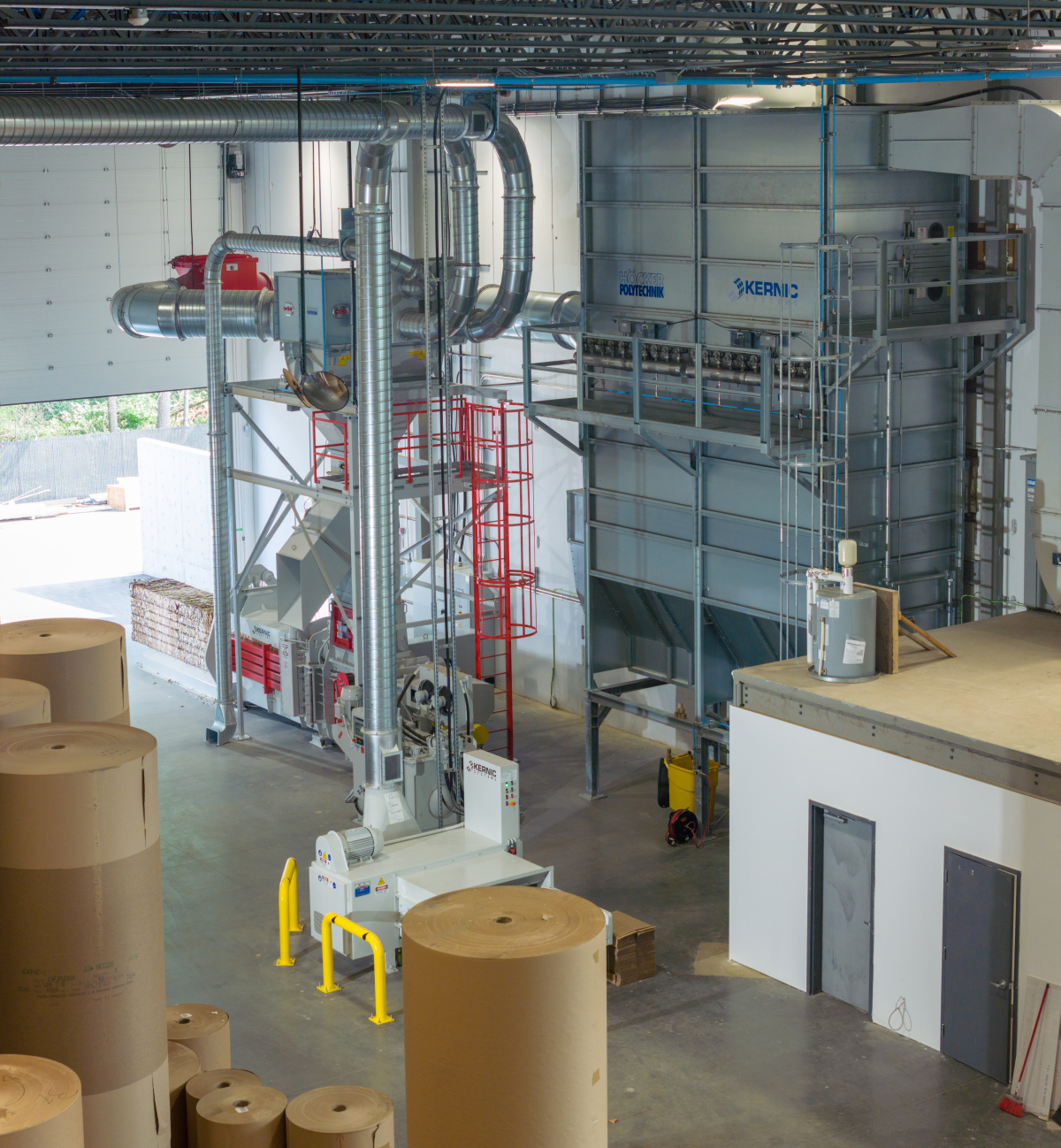 CanCorr's scrap recovery system at a glance
CanCorr's scrap recovery system at a glance
© Höcker Polytechnik GmbH
Material handling with maximum energy efficiency
The heart of the entire scrap handling system is a MultiStar filter system from Höcker Polytechnik. With an extraction capacity of 38 000 m³/h, it ensures the pneumatic transport of the shredded material and also ensures clean production, as it is used to operate the central floor vacuum system. The filter system operates under negative pressure and is up to 50 % more efficient than positive pressure systems. Implementing this type of filter option as part of the centralized scrap recovery systems also requires more experience and know-how in system design and line planning. This additional planning effort quickly pays for itself in the form of lower energy costs and increased operational reliability. This is where Kernic Systems perfectly matched the extraction technology to the operational requirements.
Two 37 kW fans with frequency control operate in the filter's fan attachment module, so that the output can be continuously adjusted to meet demand. This ensures reliable operation of all functions and only the absolutely necessary power is consumed.
 The new corrugated line from CanCorr. Clean production environment and optimal working conditions
The new corrugated line from CanCorr. Clean production environment and optimal working conditions
© Höcker Polytechnik GmbH
Heat recovery reduces heating costs
When the material is transported pneumatically, dust and paper particles are extracted but also the warm air from production. At CanCorr, the dust-laden raw air is optimally filtered and returned to production during the colder months. The heat recovery system will reduce the heating costs significantly in the colder times of a year.
The design of the Höcker Polytechnik MultiStar filter systems is explosion tested and the noise emissions of the ventilation, filter cleaning and material discharge are within the normal operational background noise of the production. Installation within the production area is unproblematic with specially designed pressure relief. The proximity to production shortens piping distances to the production machines and also has a positive effect on energy efficiency. CanCorr's filtration system meets the stringent requirements of the National Fire Protection Agency (NFPA).
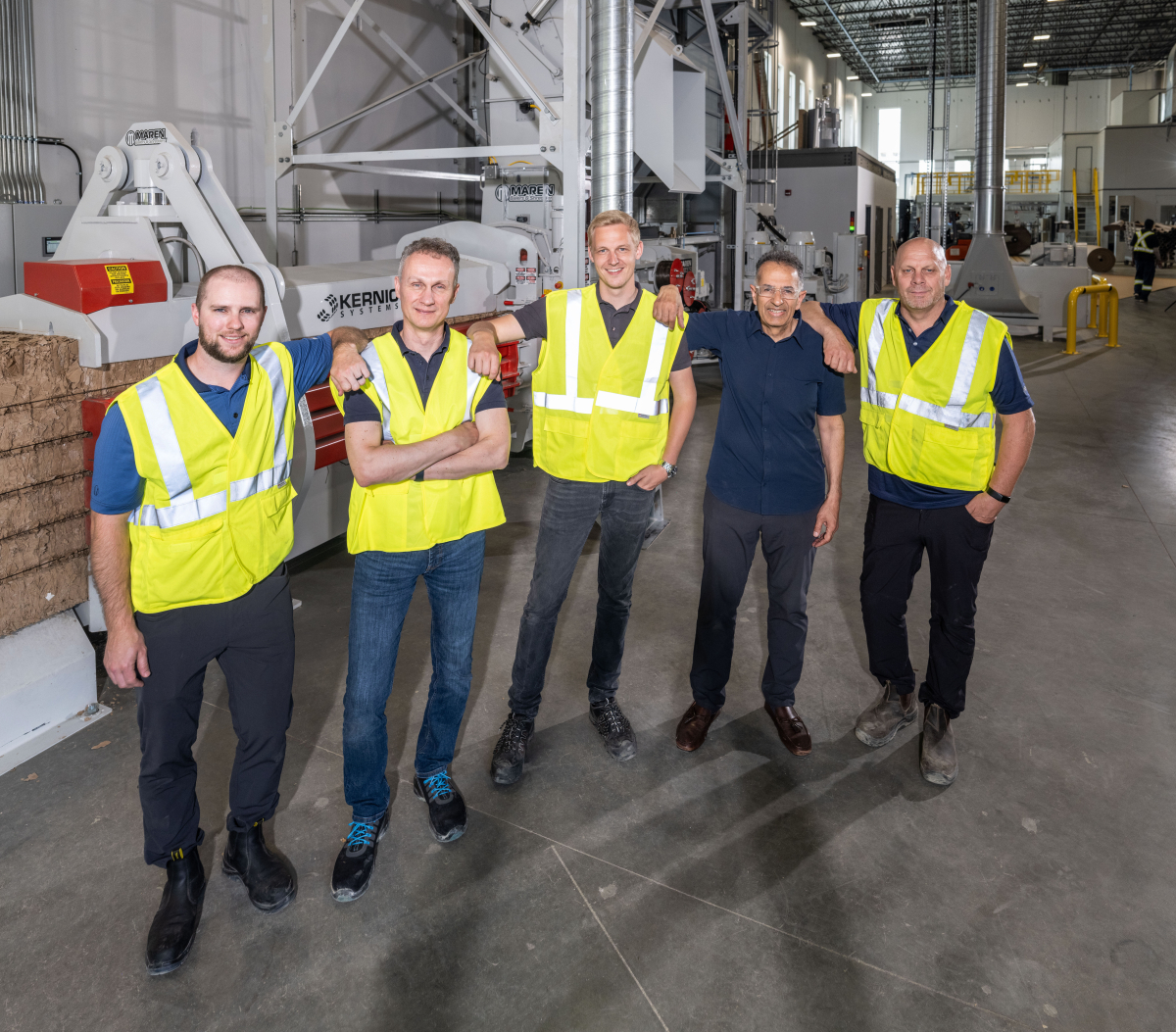 A strong team. From left to right: Daniel Williams (Sales & Marketing, Kernic Systems), Carsten Holldack (Sales Director, Höcker Polytechnik GmbH), Philipp Koch (Project Manager, Höcker Polytechnik GmbH), Abi Naemi (Executive Partner, CanCorr), John Jurk (Vice President & Partner, Kernic Systems)
A strong team. From left to right: Daniel Williams (Sales & Marketing, Kernic Systems), Carsten Holldack (Sales Director, Höcker Polytechnik GmbH), Philipp Koch (Project Manager, Höcker Polytechnik GmbH), Abi Naemi (Executive Partner, CanCorr), John Jurk (Vice President & Partner, Kernic Systems)
© Höcker Polytechnik GmbH
Edge trim shredding and material handling
The main task of the disposal system is the safe removal of edge trims from the corrugator. A centrally positioned edge trim fan shreds the edge trim to allow a pneumatic transport to the centralized scrap system.
The material is transported to a material separator, which operates upstream of the filter system. Here, the process waste is separated from the air stream and fed to the baler. The material from a shredder is also processed in the material separator. Only the fine dust then enters the filter system, is discharged into the integrated briquetting press and can then be compressed in the form of briquettes for a labor free dust disposal program. The material separation protects the filter system and the filter socks. PMA material separators from Höcker Polytechnik operate according to a patented principle and are available with an air volume of up to 75 000 m3/h.
Smart PLC control and control cabinet according to CSA 22.2 standard
A finely tuned PLC control system harmonizes the entire process waste disposal. If the workload in production increases or floor extraction is used, the filter capacity is automatically ramped up. When the workload decreases, the filter system quickly adjusts again. The Kernic Systems team, together with the control specialists from Höcker Polytechnik, have mapped all the processes of corrugated scrap waste disposal and integrated them using specialized control technology. In this way, productivity gains can be achieved through reduced energy consumption and, at the same time, production downtimes can be increased. All components and the design of the control cabinets comply with the UL 508a / CSA 22.2 standard.
CanCorr's new corrugated plant on the west coast of Canada demonstrates the possibilities that open up when process waste management works in harmony with a modern corrugated line – energy consumption is reduced and sustainable recycling management can be automated.
Philipp Koch, project manager at Höcker Polytechnik GmbH, accompanied the CanCorr project together with Kernic Systems from the initial planning phase to commissioning. For him, this project was exciting not only because of Vancouver's impressive landscape, but also because of CanCorr's commitment to economic sustainability: “Edge trim processing in modern corrugated board production is one of the biggest challenges in process waste management. Our goal is always to ensure that the customer has no points of contact with the scrap handling system in everyday use. We achieve this with a high material quality of our products and a high degree of automation.” Höcker Polytechnik relies on robust technologies that have been tried and tested by some of the largest manufacturers of corrugated board other paper products in 24/7 operations. Only if the shredded edge strips have constant sizes and the pneumatic transport also operates with a constant air flow can trouble-free production be guaranteed. The Höcker Polytechnik and Kernic Systems teams worked together, with a lot of ideas and experience, to implement an automated process waste disposal system in the new CanCorr plant. Thanks to the energy-efficient filter system, a perfectly adapted control system, heat recovery and short piping distances, energy consumption for waste disposal has been reduced dramatically. Personnel are now only required for handling the material prepared for the recycling process. We wish CanCorr every success with the new corrugated board plant and thank the Kernic Systems team for another first-class project. Terrific job!“

